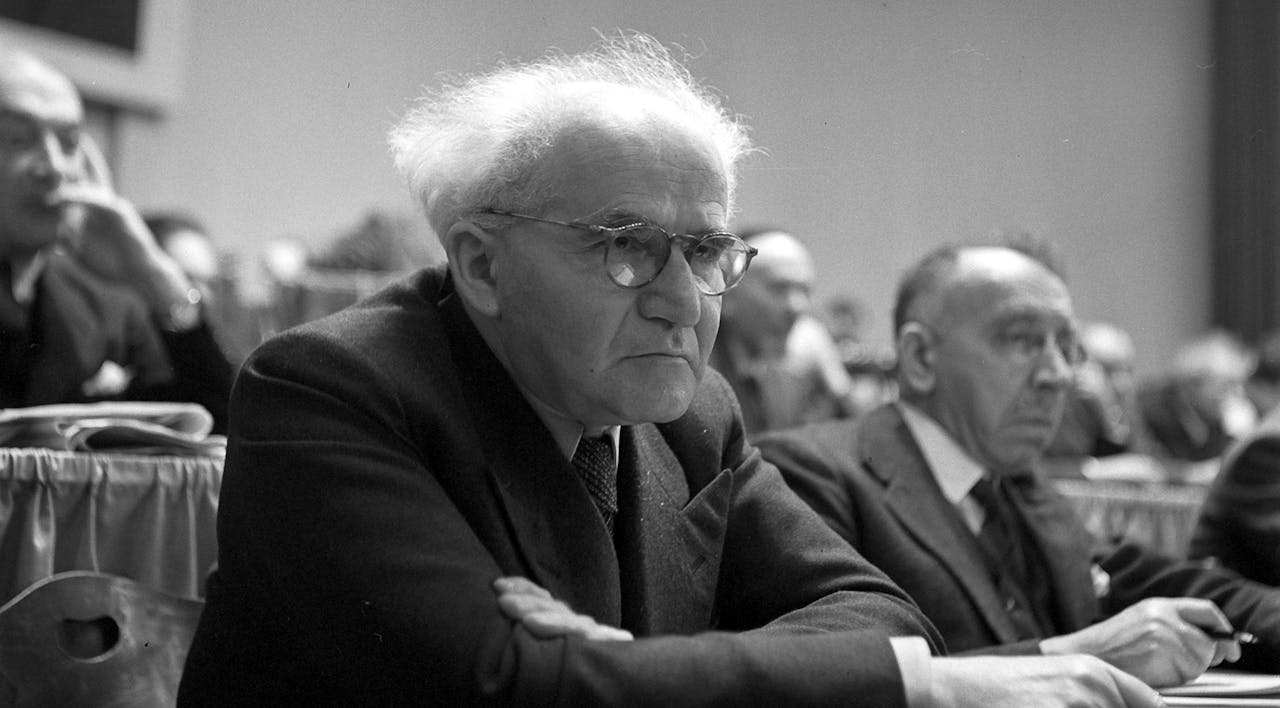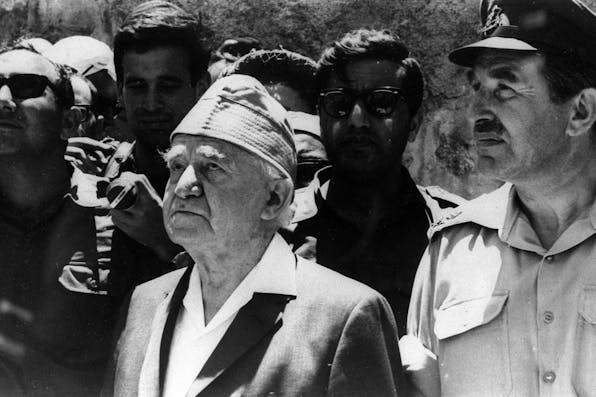
January 2024
What Would Ben-Gurion Do?
Israel’s founding father argued for a conception of politics uniquely tailored to the Jewish state. Fifty years after his death, his country could use it more than ever.
David Ben-Gurion died 50 years ago, December 1, 1973, at the age of eighty-seven. He lived just long enough to see the state survive the Yom Kippur War, its “most serious and cruel war,” as he described it in one of his final notes. He had been in reasonably good health until he suffered the first of two strokes a few days after the outbreak of the war. A doctor who examined him after the stroke later recalled encountering “an old and weary lion.”
Though he had often threatened retirement (and left the premiership briefly in the mid 50s), Ben-Gurion’s final retirement had been short. Like many of the best (and worst) leaders, he had great difficulty surrendering power. In 1965, he was essentially expelled from the Mapai party (the precursor to today’s Labor) after he attempted a rebellion against Levi Eshkol, who had replaced him as prime minister two years prior. He resigned from the Knesset for good in 1970, only three years before he died.
Excluded for the first time in three decades from leadership, Ben-Gurion in these last years remained engaged politically. After the triumph of the Six-Day War, he called for proactive policies to turn the military victory into a political one. According to his plan, Israel would annex the whole of Jerusalem; as for the remainder of the territory conquered from Jordan, Ben-Gurion advocated for an Israeli security zone along the Jordan River and negotiations with local Arab leaders over control of the rest of the West Bank. He had long seen Gaza as a source of instability. Shortly after the Suez War of 1956, he predicted that “the Gaza Strip would be a source of trouble as long as the refugees had not been resettled elsewhere.” Having conquered a then-much-more-sparsely populated Gaza from Egypt, he urged relocating some number of refugees to the West Bank—if they agreed. (Israel would formally annex the eastern neighborhoods of Jerusalem in 1980; no other aspects of this vision came to fruition.)
